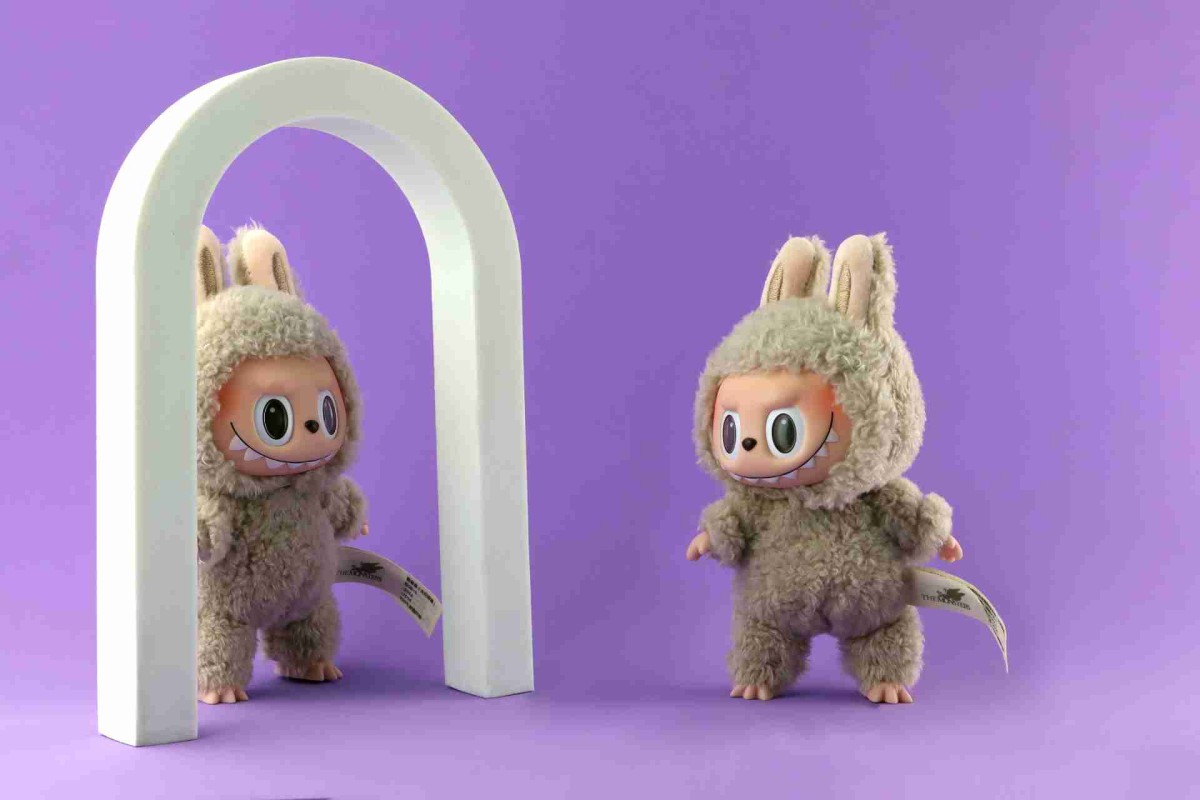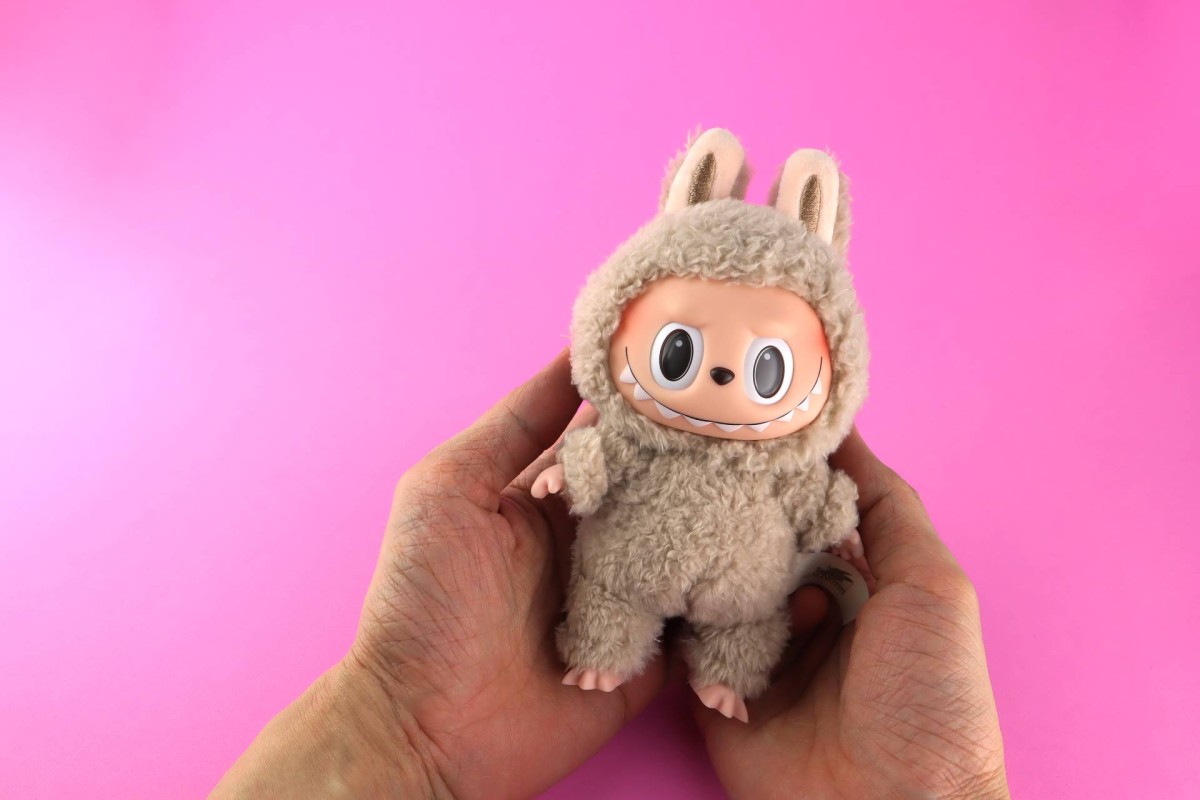Inside almost every major city, whether in the heart of Shanghai or the bustling lanes of Auckland, a curious retail phenomenon is taking hold: blind boxes.
Sealed packages containing collectable figurines of unknown designs, the blind box is gamifying and innovating, turning what could be mere retail into fandom, collectability, and a pop culture craze.
“Blind boxes are like an adult Lucky Dip. It’s a quick hit of dopamine in uncertain times,” one buyer says. “It reminds me of goodie bags at expos and packages at the mail, I know what’s in there, but there’s still a surprise inside.”
At the heart of this burgeoning movement sits the Labubu, an impish, sharp-toothed character from Pop Mart’s ‘The Monsters’ line.
“The Labubu is the physical representation of brain rot,” another buyer says. “Whoever invented them must be making a killing.”
Its journey from quirky art toy to global business juggernaut is revolutionising not only how products are sold but what modern ‘collecting’ means, for consumers and commerce.
“It’s like fast fashion in a way, but these trend cycles have been going on since consumerism began. Whether it was housewives buying lipsticks, Tupperware parties, or an Avon magazine, it’s all just junk. But it’s happy junk.”
Labubu and the Blind Box Ecosystem
The blind box concept is disarmingly simple. Customers purchase a sealed box, knowing only that it contains a figurine from a broader series, but not which specific design it is.
“I’m a sucker for surprises. I love the adrenaline,” another buyer says. “It gets my serotonin levels going, which I lack, as someone with ADHD. The impulse is real.”
Some releases include rare ‘secret’ editions, which can trade on secondary markets for hundreds or even thousands of dollars. This injection of mystery and gamification has proven extremely effective at driving repeat purchases, community building, and even investment-like behaviour among fans.
Pop Mart, the Beijing-based conglomerate responsible for Labubu’s ascent, has meticulously engineered this experience, embracing a blend of retail psychology, scarcity economics, and pop culture zeitgeist.
Labubu, originally designed by Hong Kong artist Kasing Lung and rolled out by Pop Mart in 2019, rapidly accelerated the success of the blind box model. In 2024 alone, Labubu and its associated ‘Monsters’ tribe contributed over $400 million in revenue, a 726% increase over the previous year. Global sales for Pop Mart surpassed $1.8 billion, with international markets (including notable hype in New Zealand) representing nearly a quarter of total earnings.

The Key Innovations Driving the Blind Box Boom
The Gamification of Retail
“There are always better things to spend your money on, but that’s not the point. Spending $11 on butter doesn’t hit the same, and doesn’t make me fat.”
By introducing an element of chance—akin to opening a pack of trading cards or participating in a raffle—blind boxes transform shopping into an experience and a thrill, rather than just a transaction. The “surprise” factor taps into deep psychological drivers, including curiosity, the desire for completion, and even mild forms of risk-taking behaviour.
Community and Fandom
Fans don’t just buy and display Labubus, they organise, trade, and customise. From sharing unboxing videos on TikTok to swapping rare editions via online marketplaces or attending trade shows, a strong participatory community has formed around blind box collecting. This social infrastructure reinforces engagement and, crucially, loyalty.
“Nail techs are putting nails on them! They’ll get a long French tip or something.”
Product Scarcity and Collectability
“I have such money anxiety that I couldn’t ever buy one,” another buyer says. “I need to spend my money on other things I have more control over.”
Not every Labubu is created (or distributed) equally; “chase” variants and secret editions are deliberately produced in much smaller quantities. This engineered scarcity fuels demand, drives up secondary market prices (occasionally into the thousands), and maintains a high level of buzz around each new series drop.
“They’re so ugly that they’re cute. It’s like the discarded pug at the shelter.”
Retail Channel Innovation
Pop Mart has combined flagship boutiques, pop-up stores, and—most importantly—hundreds of automated vending machines to bring blind boxes to where people live, work, and socialise. The “toy vending machine” is now as common in Chinese urban centres as a coffee cart, and the model is rapidly taking off in Western retail.
Celebrity and Pop Culture Influence
“Initially, I hated them. They’re feral-looking. TikTok influenced me over time.”
Labubu’s leap from niche art circles into the mainstream was catapulted when global celebrities like Lisa (Blackpink), Rihanna, and Lizzo were spotted accessorising their designer bags with Labubu keychains. This “fashion meets fandom” synergy has driven demand through social media virality and solidified Labubu as a status symbol among Gen Z and millennials.
The New Zealand Angle
While China and wider Asia remain the epicentre of blind box collectables, the phenomenon has also landed in New Zealand, aligning naturally with the country’s long-standing consumer passion for collectables and pop culture imports.
Local fans are now forming active online and offline communities, trade meetups are emerging in major cities, and retailers are experiencing unprecedented repeat foot traffic due to regular blind box ‘restock’ events.
For New Zealand retail, Labubu and the wider blind box revolution offer an answer to “retailtainment”—the drive to make brick-and-mortar a space for experiences, not just products.
Blind-boxed collectables, with their steadily rotating series and high repeat-purchase potential, provide insulation from seasonality and planned obsolescence, thereby diversifying.
They also have a cross-market appeal, engaging everyone from children to adult collectors (often parents and kids together).
Therein lie opportunities for local artists and brands to partner, drawing on the blind box model for New Zealand-specific releases and leveraging global fandoms.

Lessons for Business: Beyond Toys
The blind box phenomenon isn’t just a curiosity in art toys; it’s a bellwether for new business models in experience-driven commerce.
“It’s stupid fun. ‘What am I going to get? What if I double up? There’s a pressure, a thrill, it’s so fun.”
Consumer Engagement Loops
By embedding surprise, scarcity, and ongoing collectability, brands can foster emotional investment that extends well beyond the initial purchase. This loop—of purchase, reveal, social sharing, and trade—builds habit and loyalty
“They’re already selling clothes for them, too. That customising is super enticing.”
Blurring Product and Experience
The purchase is more than an exchange of money for a product; it’s a moment of suspense, a shared ritual, and a participatory event. For New Zealand innovators, the lesson is clear: experiential differentiation is now essential, and the mechanics of unboxing, surprise, and reward can be adapted to everything from skincare to tech gadgets.
New Retail Technology
Vending machines, social trading apps, AR-augmented reveals, and companies like Pop Mart are demonstrating just how seamlessly technology can scale collectability and FOMO (fear of missing out), without requiring large-format stores or incurring huge inventory risks.
Brands as Platforms
By collaborating with artists worldwide and allowing fans to remix, trade, and display their wins, Labubu and its peers are becoming open platforms for not just creativity but commerce—creating both economic and cultural impact.
Risks and Critiques
No revolution is without its shadow side. Blind box products face criticism for their addictive loop, potentially encouraging overspending among both adults and minors. The environmental footprint of small toys and packaging is an emerging concern, as is the problem of counterfeits in secondary markets. Brand longevity also depends on continually refreshing product lines and collaborations; without it, hype could fade, and with it, the loyalty of “completist” fans.
What’s Next: The Future for New Zealand Innovators
As Labubu’s journey has shown, cultural products can catalyse new forms of retail, community, and fandom. The blind box model’s global success demonstrates that consumers crave narrative, suspense, and ownership in their purchasing decisions.
For New Zealand businesses eyeing innovation, there is room to adapt and evolve the blind box principle.
Kiwi Blind Boxes
Partner with local artists and Indigenous creators to release unique, “Kiwi” blind boxes—turning cultural heritage into contemporary collectable culture
Digital Blind Boxes
Combine blind box psychology with digital twins, blockchain-backed provenance, or AR-enabled unboxings
Surprising Blind Boxes
Use surprise mechanics for other products and categories, from subscription food boxes to fashion accessories, all anchored by local storytelling and sustainable practice
Labubu may be small, cheeky, and a little odd, but its business impact is towering. As blind boxes continue to unleash new models of commercial engagement, they offer a lesson in delight, community, and innovation that New Zealand businesses are only just beginning to tap.























